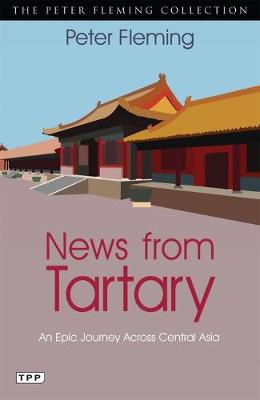Reviewed by brokentune on
Do not be led by the star rating. There is a reason for the three stars, but on no accounts do 3 stars mean that this book is not worth your time.
News from Tartary is a great book. Peter Fleming had a marvellous ability to write. This report of his travel from Beijing across China and into India via Kashmir is a fantastic account of what it was like for a European to set out on a trip that very few people had accomplished before and that few adventurers have managed to describe to a Western readership since the days of Marco Polo.
When Fleming set out on his trip in 1935, he soon had to abandon his plans of travelling alone. Because of the political upheaval in China at the time - Japanese invasion of Manchuria, the rise of the Communist army - roads were blocked and warrants issued for anyone who did not have the right papers, the right connections, or the right demeanor. It was at this point that Fleming joined forces with Ella ("Kini") Maillart, a Swiss traveller and writer, who had also planned to follow the Silk Road across China - by herself.
Neither of them wanted to join forces, but the alternative for both would have been to abandon the trip. Together, they could produce enough languages, life skills, money, and passports/visa to at least leave Beijing - and try and by-pass the official control posts. Maillart also wrote an account of this trip in her book Forbidden Journey , but unlike Fleming her outlook on the trip and the content of her observations are quite different.
When reading News from Tartary, I probably learned more about Fleming than about the people he meets and the countries he passes through. It is also good to remember that when Fleming set out on his trip, he worked as a political correspondent for The Times, and much of Fleming's interests in the book focus on the political and military situation in China. For example, Fleming goes into quite some detail about the political leaders he meets, and troop movements he observes. As it turns out, however, his enthusiasm for political analysis may not have made up for a lack of expertise or indeed a lack of understanding of Chinese culture and society.
And this is really the crux of my hesitation to rate this book any higher: Fleming tried hard to transcend the stifled English attitude and open up to experience this different world that he threw himself into, but he never really manages to fully do this. As a result, the book reads like a boy's own adventure story - which it is, of course - but which could have been so much more in that his preoccupation with the British perspective seems to have blinded him to the marvels and wonders of the people and landscape he took so much trouble to encounter.
Reading updates
- Started reading
- 11 April, 2015: Finished reading
- 11 April, 2015: Reviewed
